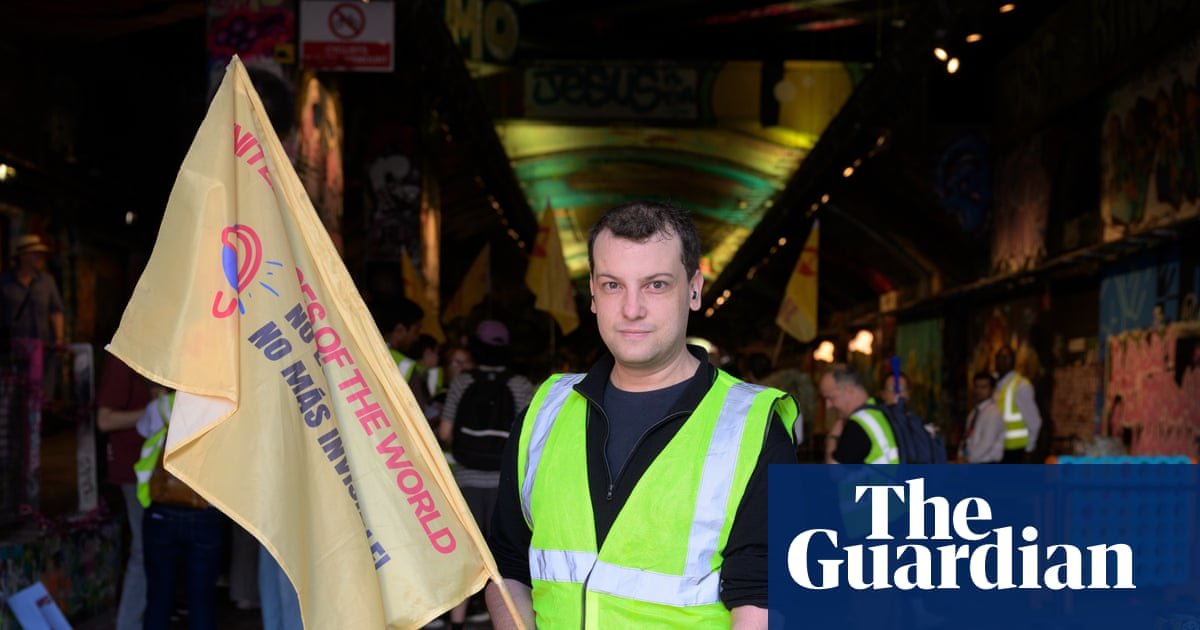Business
‘I Don’t Trust It’: Lawmakers Sound Off on Why They Still Don’t Use AI

AI has become a big topic on Capitol Hill, and some lawmakers are finding ways to use it in their daily lives.
But while some are using Grok to come up with one-liners, asking ChatGPT to punch up speeches, or deploying AI to scrutinize their own records, plenty of their colleagues still haven’t gotten into it.
“I haven’t had the chance to really explore the tools,” Democratic Rep. Gabe Vasquez of New Mexico told BI. “I’m a little behind the times in that sense.”
There’s no single reason why. Some remain skeptical about the technology’s ability to provide reliable information. Others fear that if they use it, they’ll erode their own faculties. At least one has publicly fought with an AI chatbot on X. And often, it simply comes down to a lack of interest.
For Sen. Tim Kaine, it’s a combination of several of those things.
“I feel like I’m so comfortable with my ability to access information that I don’t really need it,” the Virginia Democrat said, explaining that he’s never used AI chatbots “voluntarily.”
He does, however, encounter artificial intelligence involuntarily: Recently, his email client began furnishing him with AI-generated summaries of his email.
“It’s like, first, I didn’t ask for it. Second, it’s got a high error rate,” Kaine said. “Third, to do an AI summary of emails I can read myself is a use of energy, somewhere, that I have to feel like is kind of an excess.”
‘I still like to compose original thoughts’
BI spoke to roughly a dozen lawmakers in June about their use, or lack thereof, of AI chatbots like Grok and ChatGPT. Polling has shown that a growing number of Americans are using AI in the workplace, with a recent Gallup poll finding that 40% of employees use it a few times per year and 27% use it frequently or daily.
Republican Rep. Greg Murphy of North Carolina, who remains a practicing urologist in additional to his congressional duties, says he’s “dabbled” with AI, primarily for medical questions.
He says he doesn’t use it for his official work, and he doesn’t want his staff to do so either.
“I don’t want people writing speeches for me, or doing letters to constituents with that,” Murphy said, adding that if his constituents “wanted something from ChatGPT, they could have Googled it themselves.”
Sen. Josh Hawley, a fellow Republican, takes an even harder line against AI — he doesn’t use AI chatbots out of principle.
“I don’t trust it, I don’t like it, I don’t want it being trained on any of the information I might give it,” the Missouri senator, a frequent critic of Big Tech, told BI.
Some lawmakers’ reservations are rooted in their hesitance to rely on technology for something they already do themselves.
“I’ve just never felt the need, and I like being creative,” Democratic Rep. Alexandria Ocasio-Cortez of New York told BI. “Writing is a use-it-or-lose-it skill, and I don’t want to lose it.”
“I still like to compose original thoughts, and not rely on technology to help state what I feel,” Democratic Rep. Jim McGovern of Massachusetts said.
Large language models are also known to confidently deliver faulty information — known as “hallucination.” For Sen. Elizabeth Warren, that’s enough to discourage her from using it.
“I might as well go out on the street and ask a random person a question and see what words they come up with,” the Massachusetts Democrat told BI. “Maybe they’re right, but then again, maybe they’re not, and the only way to know that is to do the research yourself.”
Business
Grindr’s CEO Says There Is a ‘VC Bubble’ Forming Around AI

Grindr may be an “AI-first company” these days, but its CEO remains skeptical of the amount of money being thrown at certain AI companies.
The debate over whether an AI bubble is forming has reached a fever pitch in the past few months. OpenAI CEO Sam Altman recently told reporters that “overexcited” investors were practicing bubble-like behavior around the industry.
Business Insider asked the LGBTQ+ dating app’s CEO George Arison about Altman’s comments. Arison said that a “VC bubble” was forming — but that the AI incumbents have an incentive to advise against investment.
“This is how venture always works,” Arison told Business Insider. “Most VCs are actually followers, not trendsetters. A few people will set the trends, then everyone will jump in that direction and too much money will go into that space.”
Arison also warned that a lot of “great companies” would “get destroyed” because of the VC frenzy around AI. He analogized it to the late-2010s SoftBank investments.
“How many companies probably should not have taken money from SoftBank five, seven years ago?” Arison said. “Had they not done that, they might have still been around.”
SoftBank invested $9 billion in WeWork, which later filed for bankruptcy. It also invested $375 million in Zume, which has now shut down. SoftBank did not respond to a request for comment.
Arison said that the “VC bubble” was specifically forming on the “application side,” and not among the architecture or model companies.
“How many sales agents do you need?” he asked.
The bubble isn’t too worrying, though, Arison said. He called it an “inevitable component of how venture capital works.” Some companies will fail, but others will be “very, very successful,” he said.
Arison declined to speak to the OpenAI CEO’s remarks specifically, but spoke more broadly about “incumbent” AI companies that want to protect themselves.
“If you are an incumbent large AI player, you kind of want to stop a lot of investment from going into this space because you now have a unique competitive advantage,” Arison said.
OpenAI did not respond to a request for comment.
Arison also said that the AI field was rife with competitors rapidly outpacing each other. He analogized it to his first company, Taxi Magic. Originally a Blackberry app, Taxi Magic was an early iteration of mobile car-booking company, but then Uber came along and out-innovated it.
“Cursor, which is an innovator, is being out-innovated by Anthropic because Claude Code, a lot of people would say is way better,” Arison said, before clarifying that he himself doesn’t have a preference between the two vibe-coding tools. Grindr uses both, he said.
Arison also sees innovation happening in the foundation models themselves.
“What Elon has done with Grok is actually pretty incredible,” he said. “You have other companies that have been working on these things for so long, and he created something brand-new and most likely it’s headed in the direction of it being better than anybody else.”
Ultimately, Arison said he didn’t think that VCs were over-investing in AI. He’s excited about the tech; Grindr released a slide deck with its second-quarter earnings this year about how the company was embracing gAI. (That’s pronounced “gay-I.”)
What Arison emphasized was that the money was going to the wrong places.
“VCs are herd,” he said. “Wherever the three sheep go, then everybody else follows.”
Business
‘All the power is with the employer’: why zero-hours workers welcome Labour’s rights bill | Zero-hours contracts

When Seamus Foley took a job on a zero-hours contract at a board games bar in London two years ago, the flexibility it offered was appealing. Now, it is a deal so bad he is prepared to walk out on strike.
“It’s exhausting. You’re constantly living your life on the back foot,” says the employee at Draughts, which has bars in Stratford and Waterloo. There, workers fed up with last-minute rota changes and a lack of basic protections are staging industrial action.
“It feels like all the power is in the hands of the employer. Like [the contract] is designed to keep you desperate, hungry and uncertain as to what your next week or two weeks look like,” Foley said.
Almost 1.2 million workers in the UK are on zero-hours contracts. Despite the preparations being made by Keir Starmer’s government to ban the use of exploitative arrangements, a key manifesto promise, the zero-hours ranks have swelled since Labour’s election victory, rising by more than 100,000 to close to a record high.
Big employers with hundreds of thousands of zero-hours staff between them include McDonald’s, Burger King, Dominos and Mike Ashley’s Frasers Group, and the contracts are still routinely used in social care, hospitality and logistics.
Workers’ rights have been a long-running battle between the government and employers – a row that will intensify this autumn once MPs return from their summer break amid fierce lobbying to water down Labour’s employment rights legislation.
A flashpoint will come in a showdown between ministers and Conservative and Liberal Democrat peers, after the Lords imposed amendments in the final days before the summer recess to drastically curtail the bill.
Justin Madders, the employment minister, said Labour would face down the critics. “We have got a democratic mandate to introduce this bill and the measures. Our starting point is we would continue with it. We’ll see where we end up [with the Lords], but I don’t think at the moment we’ll be looking to resile from things that were clearly in our manifesto.”
Business groups say the cost of hiring staff has soared under Labour after the chancellor Rachel Reeves’s £25bn increase in employer national insurance contributions (NICs) and rise in the “national living wage” were introduced from April.
Firms say too many changes are being made at once when Britain’s economy is weak and the jobs market cooling. Unemployment has risen, partly due to Reeves’s tax rises. Businesses say adding to their costs further would drive joblessness higher, highlighting a £5bn price tag for the workers’ rights policy in the government’s own impact assessment.
Jane Gratton, the deputy director for public policy at the British Chambers of Commerce, said: “You’ll have seen from the figures that the labour market is loosening. If you make it more difficult and costly to employ people, it’s likely to impact on opportunities for people. It will drive business behaviour. We know the government’s own assessment is £5bn. We think that’s probably an underestimate.”
A Federation of Small Businesses survey found 67% of small firms would recruit fewer staff. Firms also say many zero-hours workers like the flexibility the contracts offer, including students in particular.
“These measures will just tie businesses in knots and will have real negative impacts on workers too, such as stopping people swapping shifts. It shows what goes wrong when there is such an out-of-touch approach to policymaking,” said Tina McKenzie, the lobby group’s policy chair.
Some lobbyists believe Labour is more likely to cede ground on workers’ rights than on tax and spending before a tough autumn budget. Unlike a costly and embarrassing U-turn on employer NICs, any changes would be fiscally neutral, and it would sit well with Reeves’s wider deregulatory agenda.
However, party insiders say this would underestimate Reeves’ and Starmer’s commitment to stronger workers’ rights. Both are also under pressure to stick to the policy after disappointing many core Labour voters since coming to power.
The bill’s chief proponent, the deputy prime minister, Angela Rayner, said the government wanted to work closely with businesses to make the details of the bill work, including a consultation on the zero-hours ban this autumn, but that changes were vital after years of workplace exploitation.
“Zero-hours contracts are leaving far too many people without the security they deserve – working hard but left waiting for shifts, unsure what their pay will be month to month. We are tackling this head-on,” she said.
Under Labour’s planned changes, zero-hours workers will get the right to a guaranteed-hours contract reflecting their hours over a 12-week reference period. This comes alongside other measures including day-one protections against unfair dismissal and rolling back trade union restrictions.
To overcome business concerns over the breadth of the policy changes, the government has planned to introduce each step gradually, with the ban on zero-hours contracts coming last in late 2027.
However, critics on Labour’s left say this is glacial change and warn that allowing continued use of zero-hours contracts does not constitute a ban and leaves too much power in the hands of bad bosses.
after newsletter promotion
Madders said Labour had sought to strike a balance that recognised how some workers appreciate the flexibility of zero hours, while tipping the balance to stop bad employers forcing staff to stay on those terms against their will.
“What we have done is find a pretty sweet spot where, actually, people who want some certainty and security at work will be able to have that. The bill is done in a way that can make sure that people who do not want to be on a zero-hours contract will not be forced,” he said.
Official figures show 60% of zero-hours workers do not want more hours. About a quarter are in full-time education and more than half are under the age of 35. Those on the contracts work about 19 hours a week on average, compared with 32 hours for other workers. As many as 10% of zero-hours workers have been on such an arrangement with their employer for more than 10 years.
Working conditions have long been an early casualty of straitened economic conditions in Britain. Zero-hours contracts first rose to prominence in the febrile climate after the 2008 financial crisis as employers sought a way to flexibly ramp up their labour capacity to meet slowly returning consumer demand, with the get-out clause that they could reduce staff hours to cut their costs if things turned south again.
Mike Ashley, the billionaire retail tycoon, and his Sports Direct chain became a target for public anger over its use of the contracts and its wider employment practices after a Guardian investigation found workers at its main warehouse in Shirebrook, Derbyshire, were receiving an effective hourly pay rate below the minimum wage.
As the contracts became near synonymous with worker exploitation, some firms dropped them, including the pub chain JD Wetherspoon. McDonald’s moved to allow workers to choose a guaranteed-hours contract. However, about 90% of McDonald’s 135,000 UK staff are still on zero-hours terms and the fast food chain has faced accusations of harassment and sexual assault by managers. McDonald’s did not respond to a request for comment.
Unions say warnings over the hit to the jobs market resemble the same arguments used in the 1990s against Labour introducing the minimum wage, which were shown to be false. They highlight that strengthening workers’ rights is a vote winner, backed by most of the electorate, and that more job security is key to boosting workforce productivity.
Tim Sharp, the head of employment rights at the TUC, said: “We’ve had this long experiment with zero hours and other forms of precarious contract for too long. There is no incentive for employers to train and develop their workers and we pay the economic price for that.”
However, analysis by the Resolution Foundation suggests the changes will have neither a massive negative impact nor a huge positive one. Even if the government’s £5bn cost to businesses transpires, it would equate to just 11,000 job losses.
It said: “This is tiny – cutting the employment rate by just 0.02% – in the context of changes that will give millions of workers new protections at work.”
For Foley and his striking co-workers on the picket line at Draughts, efforts to negotiate guaranteed-hours contracts have so far run into a dead end. “Thus far it seems to be something they’re not willing to entertain,” he said.
Represented by the United Voices of the World union, it is the first time the bar worker has been involved in industrial action. He said Draughts’ managers had sought to reassure staff they would be treated fairly regardless of their contracts, but this amounted to very little. “You can’t take a verbal agreement. Ultimately, if we don’t have something written into our contracts, we can’t enforce upon it when it’s breached.”
He added: “I don’t feel like they’ve given us any sort of solid response that isn’t a platitude.” Draughts did not respond to a request for comment.
Despite fearing employers could still “game the system” under Labour’s proposals, Foley said the changes could still be very attractive. “It would definitely be better than what we have now,” he said.
Business
Publications aimed at LGBTQ+ audiences face discrimination from advertisers, editors warn | Media

Publications aimed at LGBTQ+ and other diverse audiences are facing “good old-fashioned discrimination” as advertisers avoid them after political attacks on diversity and inclusion campaigns, editors have said.
Senior figures at publications aimed at the gay community and other minority groups said a previous “gold rush” to work with such titles was over.
There has been a backlash in the US over corporate diversity, equity, and inclusion (DEI) efforts in the past 18 months, which has led to some big names rolling back their plans.
Tag Warner, the chief executive of Gay Times, said his publication, which had been growing digitally in the US, had lost 80% of its advertisers in the past year. It has also lost in excess of £5m in expected advertiser revenue.
Warner, who has led the outlet since 2019, said his title’s growth had been accompanied by an enthusiasm from brands to embrace LGBTQ+ audiences. He blames an anti-DEI drive in the US for the dramatic shift.
“I know that media and marketing is also going through a challenging year anyway, but when we’re thinking about other organisations that don’t talk to diverse themes, they’re not nearly as impacted as we are,” he said. “This is just good old-fashioned discrimination. Because discrimination doesn’t have to make business sense. Discrimination doesn’t have to be logical. Discrimination is discrimination.
“We’re really experiencing the impact of what happens when voices that are pressuring organisations to give in to less inclusive perspectives start winning. Then it creates this massive behavioural shift in brands and organisations.”
Nafisa Bakkar, the co-founder of Amaliah, a publication aimed at “amplifying the voices of Muslim women”, said there had been a “change in mood” among brands and advertisers. “There was this DNI [diversity and inclusion] gold rush,” she said. “It is, I would say, well and truly over.
“We work with a lot of UK advertisers, but I would say that the US has a lot more emphasis on what they would call ‘brand safety’, which I think is a code word for ‘we don’t want to rock the boat’. I would say there is a lot more focus on this element.”
Ibrahim Kamara, the founder of the youth platform GUAP, which has a large black and ethnically diverse audience, said he had detected a “relative difference” from 2020 in approaches from brands.
He and others cited the economic pressures on advertisers generally in recent years. However, he said the “hype and the PR around wanting to support and connect with diverse audiences” had also subsided.
“The thing that most people within these kind of spaces can probably agree on is that the energy and the PR is very different now,” he said. “It was almost a badge of honour to be able to say that you’re supporting certain communities. Now, I’ve seen that lots of the diversity and inclusion people that were hired around that period have probably lost their jobs. It doesn’t have the same PR effect any more.”
Warner said the anti-DEI impact pre-dated the return of Donald Trump to the White House. Figures such as the conservative pundit Robby Starbuck have been engaged in a long-running anti-DEI campaign, pressuring firms to drop their diversity efforts. However, Warner said Trump’s arrival “gave everyone, I think, permission to be honest about it”.
Not all publications in the sector have been hit in the same way as Gay Times. Companies with business models less reliant on US advertising, as well as some big players with long-established relationships, said they had managed to negotiate the changing political environment.
“Brands are nervous, that’s for sure, or careful – or a combination of both,” said Darren Styles, the managing director of Stream Publishing, which publishes Attitude magazine. “They’re aware it can be a lightning rod for a vocal minority. But our experience is that most people are holding their ground, if not doubling down.”
Styles also said he was not complacent, however, given the rise of Nigel Farage’s Reform party in the UK and its lack of historical support for the LGBTQ+ community.
“I’m not incautious about the future,” he said. “Who knows what next year will bring, because that narrative is not going away. Obviously, there’s the rise of Reform in the polls.
“[Farage] is quite clearly not an ally to our community and he’s expressed disdain in the past at the awards we’ve given out to people in the trans community. So it is a worry as political momentum gains around there. But I think broadly, consumers in the UK are a bit more capable of thinking for themselves.”
Mark Berryhill, the chief executive of equalpride, which publishes prominent US titles like Out and The Advocate, said some brands and agencies “may have been a little bit more cautious than they have been in the past”. However, he said it had so far meant deals had taken longer to be completed, in a tough economic climate.
He said the political headwinds made it more important to highlight that working with such titles was simply a sound business decision. “We’ve tried to do a better job in this political climate of just selling the importance of our buying power,” he said. “Everybody’s cautious and I don’t think it’s just LGBTQ. I think they’re cautious in general right now with their work with minority owned companies.
“The one thing that maybe this whole controversy has helped us with a little bit is to really make brands realise it’s a business decision. It’s not just a charity or something you should do because you feel guilty.
“You should do it because it’s the right thing to support LGBTQ journalism. We’re small. We need to get the word out. We have important stories to tell. But it’s also a good business decision. The more we show that side, certain brands will come along.”
-
Tools & Platforms3 weeks ago
Building Trust in Military AI Starts with Opening the Black Box – War on the Rocks
-

 Ethics & Policy1 month ago
Ethics & Policy1 month agoSDAIA Supports Saudi Arabia’s Leadership in Shaping Global AI Ethics, Policy, and Research – وكالة الأنباء السعودية
-

 Business2 days ago
Business2 days agoThe Guardian view on Trump and the Fed: independence is no substitute for accountability | Editorial
-

 Events & Conferences3 months ago
Events & Conferences3 months agoJourney to 1000 models: Scaling Instagram’s recommendation system
-

 Jobs & Careers2 months ago
Jobs & Careers2 months agoMumbai-based Perplexity Alternative Has 60k+ Users Without Funding
-

 Funding & Business2 months ago
Funding & Business2 months agoKayak and Expedia race to build AI travel agents that turn social posts into itineraries
-

 Education2 months ago
Education2 months agoVEX Robotics launches AI-powered classroom robotics system
-

 Podcasts & Talks2 months ago
Podcasts & Talks2 months agoHappy 4th of July! 🎆 Made with Veo 3 in Gemini
-

 Podcasts & Talks2 months ago
Podcasts & Talks2 months agoOpenAI 🤝 @teamganassi
-

 Mergers & Acquisitions2 months ago
Mergers & Acquisitions2 months agoDonald Trump suggests US government review subsidies to Elon Musk’s companies





















